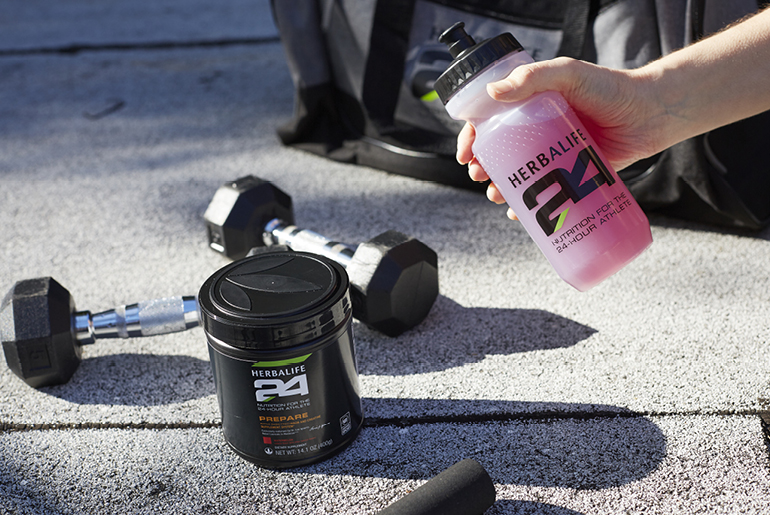Prebiotics, Probiotics and Your Microbiome

When it comes to digestive health, you may have heard of “prebiotics” and “probiotics.” Both are important in supporting the health of your digestive system – particularly that of the microorganisms that live in your gut, also known as the microbiome.
In simple terms, probiotics are the “good” bacteria that keep your body healthy, while prebiotics are the foods that promote their growth. But before we dive into the benefits of both, it helps to understand why these friendly microbes are so important.
How the Gut Microbiome Supports Your Health
Did you know that your digestive system does so much more than simply process and extract nutrients in your foods? In fact, your gastrointestinal tract has been called the “second brain” a complex system that sends and receives all kinds of information to and from your “first” brain. The “brain” in your gut has a variety of receptors that gather information about conditions in your digestive tract. It then sends signals to your “first” brain, which uses that information to control digestive function. Signals travel in the other direction, too, and this is something you’ve probably experienced in the form of a “gut reaction.”
When stress or anxiety strikes, your brain sends a signal to your gut – and the next thing you know, you’ve got a churning stomach. For this reason, it’s important to promote the growth of “good” bacteria in your gut.
One of the primary functions of the microbiome is to break down dietary fibre since the human body lacks the mechanism to get the job done.
In addition, the microbiome:
· Supports the health of your immune system (much of which resides in your gut)
· Helps keep out foreign invaders that could make you sick
· Manufactures several essential vitamins.
With so many important roles that the microbiome has in protecting your health, there is increasing attention to the role that diet plays in maintaining the health of your microbiome. While we don’t know exactly what the ideal composition of the microbiome should be, we do know that the more diverse the population of inhabitants in your gut, the better. Therefore, the foods you put into your system have a big influence on maintaining a healthy balance of the microbes in your gut, which, in turn, helps your two “brains” to work optimally together.
Did You Know?
The microbiome is an entire ecosystem comprising trillions of diverse organisms, including bacteria, fungi, and viruses. They weigh between one and three kilos and can have profound effects on your physical health and may even affect your mood.
What Are Prebiotics?
Broadly speaking, prebiotics are the compounds in many of the high fibre foods you eat. While humans lack the ability to break down certain carbohydrates and fibre that we consume in foods like fruits, vegetables, beans, and whole grains, the microbes in your gut are more than happy to do the job for you in a process referred to as fermentation. In fact, probiotics stimulate the growth and activity of the good bacteria in your digestive tract and can improve your health.
What are the benefits of prebiotics?
Prebiotics serve as food for probiotics, but they potentially can affect other organs and systems in the body. Soluble fibres not only help to fill you up, they also slow the absorption of sugar into the bloodstream, so they can help to keep blood sugar levels even throughout the day in normal, healthy people. These same fibres can also help keep blood cholesterol levels within a normal range.
In addition, prebiotics:
· Are broken down by good bacteria, producing compounds that promote gut health, skin health, and immune health
· May increase calcium absorption
· May help relieve certain digestive problems
What Are Probiotics?
The word “probiotic” derives from the Greek, meaning “promoting life.” And probiotics do just that in your digestive tract. Probiotics are the “good” bacteria (sometimes called live cultures) that you can consume from foods or supplements. Probiotics are the same bacteria that reside in your gut. Taking in probiotics can help to balance the populations of the various types of bacteria in your gut, which, in turn, promotes gut health. Probiotics are found in many fermented foods. Fermentation is a natural process in which bacteria convert sugars and other carbohydrates in foods into acids. That’s why many naturally fermented foods have a tangy taste.
What are the benefits of probiotics?
While the benefits of probiotics to digestive function are well-documented, the list of additional health benefits of probiotics continues to grow and is supported by scientific evidence. Aside from effects on intestinal health, probiotics appear to enhance the body’s immune response, and may help reduce blood cholesterol levels. Evidence also suggests that probiotics may help with blood pressure control and may also have a positive effect on mood.
Foods Rich in Probiotics
For many people, the most common source of probiotics is fermented dairy products such as yoghurt, kefir, and certain aged cheeses. In fact, one of the most common strains of probiotic bacteria that reside in your intestines is Lactobacillus acidophilus, which is found in yoghurt.
Beneficial probiotics can also be found in:
· Fermented vegetables such as pickles, kimchi, olives and sauerkraut
· Fermented soy products such as miso and tempeh
· Cultured non-dairy yoghurts
· Probiotic supplements
· Kombucha
· Other foods o which probiotics have been added, such as cereals or protein bars.





